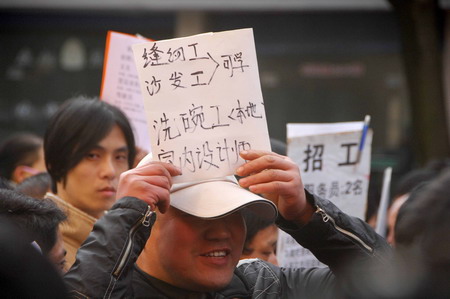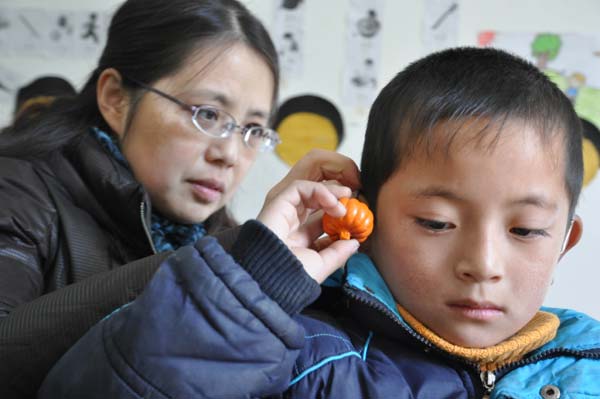Society
- Details
- By David Cao
- Hits: 766
A U.S. government panel is poised to recommend that the president unravel an acquisition made by China's Huawei Technologies Co., after the Pentagon sought review of the deal, people familiar with the matter said.
The Committee on Foreign Investment in the United States is reviewing the telecommunications-equipment maker's $2 million deal last May to buy the assets of 3Leaf Systems, a Bay Area developer of technology that lets collections of server computers work together as a more powerful machine.

The interagency committee reviews cross-border deals with national-security implications and makes recommendations to the president. A decision by CFIUS on the Huawei deal is due Monday. The transaction still could be approved, and the president is free to disregard a recommendation by the committee.
CFIUS doesn't release information about a company under review, but a person familiar with the CFIUS process said a president has vetoed a foreign transaction only two or three times. Typically, a company will withdraw its application if it gets an indication the committee will recommend against a deal.
Read more: U.S. government panel Likely to Recommend Reversing Huawei Deal
- Details
- By David Cao
- Hits: 779

Coastal and inland cities are fiercely competing to attract migrant workers as China's labor shortage spreads to less-developed central and western regions.
In Southwest China's Chongqing, many firms have set up booths at railway and bus stations to persuade workers to stay home instead of returning to the coast. Tens of millions of migrant laborers travel by train or bus during the Spring Festival break, which ends on Feb 17.
At the city's North Railway Station on Friday, about a dozen workers told China Daily that they will stay in their hometown if they can get similar wages.
- Details
- By David Cao
- Hits: 1107

More than 70 percent of urban Chinese singles getting nearer to their "expiry date" for marriage are in the grip of depression, according to China's first survey of their mental health.
"Many women who have reached a certain age like me need to make a lot of effort to ward off marriage pressure from our parents, as they keep bringing up the topic," said a 29-year-old woman surnamed Qi in Shanghai.
Qi, who has a good job in a foreign-invested enterprise, said she has seen an increased incidence of depression among the unmarried people around her.
"I admit that I want a husband, but I won't get married only for marriage's sake," she said.
These "leftover" men and women, as they are called in Chinese, are defined by the All-China Women's Federation as single women above the age of 27 and single men older than 30.
The legal age for marriage is 20 for women and 22 for men.
Read more: Single life warmed over for 'leftover' Chinese men and women
- Details
- By David Cao
- Hits: 698
China awarded more than 21 million academic degrees, including 335,000 doctorates, since 1981 when a landmark regulation provided a legal frame for the country's higher education.
The academic degrees also included 2.73 million masters' degrees and 18.3 million bachelors' degrees, according to statistics revealed on Saturday at a meeting to mark the 30th anniversary of the implementation of the country's Regulations on Academic Degrees.
The regulations, adopted in 1980 and promulgated on January 1, 1981, were important as they took the country's education standards on a track of lawful operation and helped boost social standing for knowledge and talents.
Read more: China issues academic degrees to 21million students
- Details
- By David Cao
- Hits: 807

The 21 dancers who perform the One Thousand Hands Buddha are admired across China because of their success in spite of their deafness. Few people who watch them move to music they cannot hear know that 18 of the dancers lost their hearing because of the inappropriate use of antibiotics.
The 18 are just the tip of the iceberg. In China, more than 1 million children are deaf because of the misuse of antibiotics that include streptomycin, kanamycin and gentamicin, according to the Chinese Medical Association.
Now, a gene detector that can identify children with genes that will make them susceptible to deafness is expected to turn the tide and ensure vulnerable children are no longer exposed to antibiotics that could harm them.
China's State Food and Drug Administration has approved the detector for clinical use. The device will be made available to hospitals throughout the country, said Cheng Jing, chief technology officer with the national engineering research center of Beijing Biochip Technology.
More Articles …
Page 111 of 255